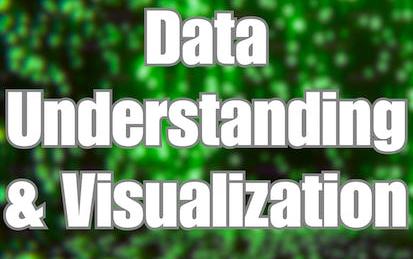

Our Courses

Data Mining Foundations and Practice
The Data Mining specialization is intended for data science professionals and domain experts who want to learn the fundamental concepts and core techniques for discovering patterns in large-scale data sets.
-
Course by

-
 Self Paced
Self Paced
-
 English
English

Introduction to Bayesian Statistics Using R
Learn the fundamentals of Bayesian approach to data analysis, and practice answering real life questions using R.
-
Course by

-
 Self Paced
Self Paced
-
 14
14
-
 English
English

Fat Chance: Probability from the Ground Up
Increase your quantitative reasoning skills through a deeper understanding of probability and statistics.
-
Course by

-
 Self Paced
Self Paced
-
 30
30
-
 English
English

Mathematics and Statistics Fundamentals Proctored Exam
Test your knowledge and ability to apply the concepts and methods from the four courses included in the LSE MicroBachelors program in Mathematics and Statistics Fundamentals and take your first step towards further study at undergraduate level or upskill in high-growth careers.
-
Course by

-
 Self Paced
Self Paced
-
 English
English

Statistics 1 Part 1: Introductory statistics, probability and estimation
The first in a series of four courses which help you to master statistics fundamentals and build your quantitative skillset for progression in high-growth careers, or to use as step towards further study at undergraduate level.
-
Course by

-
 Self Paced
Self Paced
-
 English
English

Statistics 1 Part 2: Statistical Methods
The second in a series of four courses which help you to master statistics fundamentals and build your quantitative skillset for progression in high-growth careers, or to use as step towards further study at undergraduate level.
-
Course by

-
 Self Paced
Self Paced
-
 English
English

Statistics 2 Part 1: Probability and Distribution Theory
The third in a series of four courses which help you to master statistics fundamentals and build your quantitative skillset for progression in high-growth careers, or to use as step towards further study at undergraduate level.
-
Course by

-
 Self Paced
Self Paced
-
 English
English

Statistics 2 Part 2: Statistical Inference
The final part in a series of four courses which help you to master statistics fundamentals and build your quantitative skillset for progression in high-growth careers, or to use as step towards further study at undergraduate level.
-
Course by

-
 Self Paced
Self Paced
-
 English
English

Statistics Fundamentals Proctored Exam
Test your knowledge and ability to apply the concepts and methods from the four courses included in the LSE MicroBachelors program in Statistics Fundamentals and take your first step towards further study at undergraduate level or upskill in high-growth careers.
-
Course by

-
 Self Paced
Self Paced
-
 English
English

Supply Chain Analytics
Master and apply the core methodologies used in supply chain analysis and modeling, including statistics, regression, optimization and probability - part of the MITx Supply Chain Management MicroMasters Credential.
-
Course by

-
 English
English

MathTrackX: Statistics
Understand fundamental concepts relating to statistical inference and how they can be applied to solve real world problems.
-
Course by

-
 Self Paced
Self Paced
-
 30
30
-
 English
English

Statistics for the Behavioral Sciences
How do statistics apply to your life and how can we use statistics to draw conclusions about the world? This course will provide you with an integrated and engaging online experience to explore statistics in the behavioral sciences.
-
Course by

-
 27
27
-
 English
English

Statistics
This course provides an overview of bachelor-level statistics. You will review the concepts of descriptive and inferential statistics. You will use the statistical software package R on real data to gain insight in these topics.
-
Course by

-
 Self Paced
Self Paced
-
 35
35
-
 English
English

Intro Course: Spreadsheets and Statistics
Bridge the gap between what you know and the skills you need to ensure your success and efficiency in an office setting. This course is ideal for learners who are just starting out in their professional careers, those looking to add some hard skills to their soft skills, or those looking to make the leap from contractor to full-time employee.
-
Course by

-
 Self Paced
Self Paced
-
 27
27
-
 English
English

Probability and Statistics IV: Confidence Intervals and Hypothesis Tests
This course covers two important methodologies in statistics – confidence intervals and hypothesis testing. Confidence intervals allow us to make probabilistic statements such as: “We are 95% sure that Candidate Smith’s popularity is 52% +/- 3%.” Hypothesis testing allows us to pose hypotheses and test their validity in a statistically rigorous way. For instance, “Does a new drug result in a higher cure rate than the old drug?"
-
Course by

-
 Self Paced
Self Paced
-
 English
English

Advanced Bayesian Statistics Using R
Now that you know the basics of Bayesian inference, dive deeper to explore its richness and flexibility more fully. Let’s take a closer look at modeling latent variables, Bayesian model averaging, generalised linear models, and MCMC methods
-
Course by

-
 21
21
-
 English
English

Data Science: Foundations using R
Ask the right questions, manipulate data sets, and create visualizations to communicate results. This Specialization covers foundational data science tools and techniques, including getting, cleaning, and exploring data, programming in R, and conducting reproducible research. Learners who complete this specialization will be prepared to take the Data Science: Statistics and Machine Learning specialization, in which they build a data product using real-world data. The five courses in this specialization are the very same courses that make up the first half of the Data Science Specialization.
-
Course by

-
 Self Paced
Self Paced
-
 English
English

Operational Risk Management: Frameworks & Strategies
In the final course from the Risk Management specialization, you will be introduced to the different roles in risk governance and the benefits of establishing an operational risk management program at your own workplace. This course will highlight key elements of an Operational Risk Management framework and help you identify the appropriate elements to incorporate in your own program.
-
Course by

-
 Self Paced
Self Paced
-
 7 hours
7 hours
-
 English
English

Emerging Technologies: From Smartphones to IoT to Big Data
This Specialization is intended for researchers and business experts seeking state-of-the-art knowledge in advanced science and technology. The 4 courses cover details on Big Data (Hadoop, Spark, Storm), Smartphones, Smart Watches, Android, iOS, CPU/GPU/SoC, Mobile Communications (1G to 5G), Sensors, IoT, Wi-Fi, Bluetooth, LP-WAN, Cloud Computing, AR (Augmented Reality), Skype, YouTube, H.264/MPEG-4 AVC, MPEG-DASH, CDN, and Video Streaming Services.
-
Course by

-
 Self Paced
Self Paced
-
 English
English

Data Understanding and Visualization
The "Data Understanding and Visualization" course provides students with essential statistical concepts to comprehend and analyze datasets effectively. Participants will learn about central tendency, variation, location, correlation, and other fundamental statistical measures. Additionally, the course introduces data visualization techniques using Pandas, Matplotlib, and Seaborn packages, enabling students to present data visually with appropriate plots for accurate and efficient communication. Learning Objectives: 1.
-
Course by

-
 25 hours
25 hours
-
 English
English

Risk Management
This 4-course Specialization from the New York Institute of Finance (NYIF) is intended for STEM undergraduates, finance practitioners, bank and investment managers, business managers, regulators, and policymakers. This Specialization will teach you how to measure, assess, and manage risk in your organization.
-
Course by

-
 Self Paced
Self Paced
-
 English
English

Unsupervised Text Classification for Marketing Analytics
Marketing data is often so big that humans cannot read or analyze a representative sample of it to understand what insights might lie within. In this course, learners use unsupervised deep learning to train algorithms to extract topics and insights from text data. Learners walk through a conceptual overview of unsupervised machine learning and dive into real-world datasets through instructor-led tutorials in Python. The course concludes with a major project. This course uses Jupyter Notebooks and the coding environment Google Colab, a browser-based Jupyter notebook environment.
-
Course by

-
 Self Paced
Self Paced
-
 13 hours
13 hours
-
 English
English

BI Foundations with SQL, ETL and Data Warehousing
The job market for business intelligence (BI) analysts is expected to grow by23 percent from 2021 to 2031 (US Bureau of Labor Statistics). This IBM specialization gives you sought-after skills employers look for when recruiting for a BI analyst. BI analysts gather, clean, and analyze key business data to find patterns and insights that aid business decision-making. During this specialization, you’ll learn the basics of SQL, focusing on how to query relational databases using this popular and powerful language. You’ll use essential Linux commands to create basic shell scripts.
-
Course by

-
 Self Paced
Self Paced
-
 English
English

Genomic Data Science
With genomics sparks a revolution in medical discoveries, it becomes imperative to be able to better understand the genome, and be able to leverage the data and information from genomic datasets. Genomic Data Science is the field that applies statistics and data science to the genome. This Specialization covers the concepts and tools to understand, analyze, and interpret data from next generation sequencing experiments.
-
Course by

-
 Self Paced
Self Paced
-
 English
English

Text Marketing Analytics
Marketing data are complex and have dimensions that make analysis difficult. Large unstructured datasets are often too big to extract qualitative insights. Marketing datasets also are relational and connected. This specialization tackles advanced advertising and marketing analytics through three advanced methods aimed at solving these problems: text classification, text topic modeling, and semantic network analysis. Each key area involves a deep dive into the leading computer science methods aimed at solving these methods using Python.
-
Course by

-
 Self Paced
Self Paced
-
 English
English



